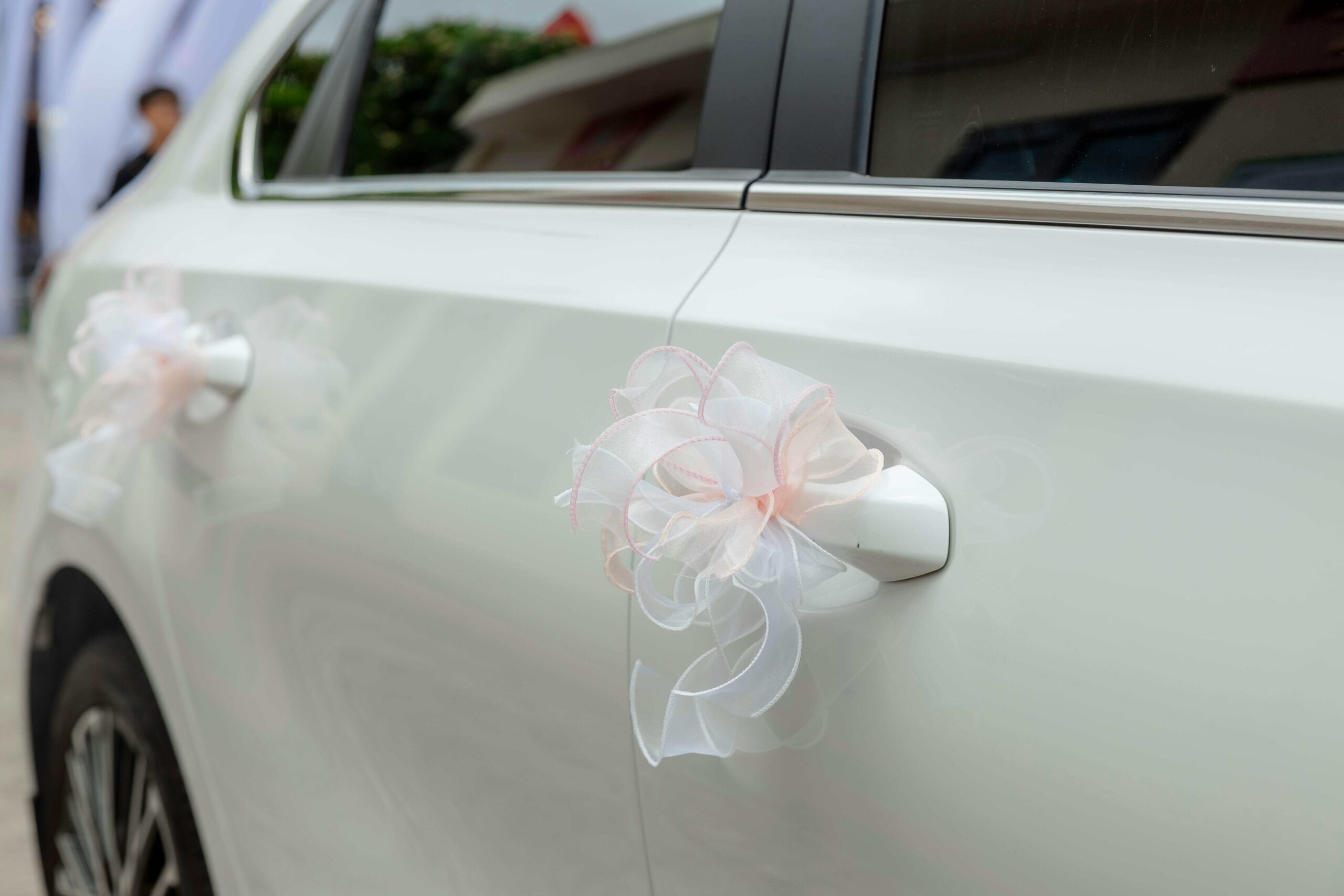3 Day Right to Cancel Car Purchase: Right or Wrong?
The 3-day right to cancel a car purchase, often known as the “cooling-off period,” has been a topic of debate among consumers and dealerships.
While some argue it offers the necessary protection for buyers against impulse decisions or fraudulent practices, others contend it burdens sellers with uncertainty and potential losses. The efficacy and fairness of such regulations depend on various factors, including consumer awareness, contractual clarity, and the nature of the transaction. The 3-day right to cancel a car purchase: right or wrong will examine both perspectives to illuminate the complexities surrounding the 3-day right to cancel car purchases and evaluate its implications for both buyers and sellers.

Can a Buyer Cancel a Car Dealership Contract?
Yes, for the car buying process in many jurisdictions, car buyers typically have the right to cancel a car dealership contract under certain circumstances.
Buyers can cancel car dealership contracts in the state’s attorney general’s office for various reasons, including misrepresentation, violations of consumer protection laws, financing issues, contract provisions, breach of contract, undue influence, and lemon law protections. However, the specific circumstances and applicable laws will determine the buyer’s rights and the process for canceling the contract.
Here are several reasons why a buyer might seek to cancel such a contract:

Misrepresentation or Fraud
If the dealership misrepresented the condition of the car, its history, or any other crucial information, the used car buyers may have grounds to cancel the contract. This could include issues like odometer tampering, undisclosed accidents, or false claims about the vehicle’s features.
Violation of Consumer Protection Laws
Many jurisdictions have consumer protection laws in place to safeguard buyers from unfair practices. If the dealership violates these laws, such as by engaging in deceptive advertising or failing to disclose mandatory fees, the buyer may have the right to cancel the contract.
Failure to Obtain Financing
If the buyer’s financing falls through and they cannot secure alternative financing on acceptable terms, they may be able to cancel the contract. However, this often depends on whether the contract is contingent upon financing and the specific terms outlined in the agreement.
Cancellation Provision
Some contracts include a specific provision allowing the buyer to cancel within a certain timeframe. This could be a cooling-off period mandated by law or a provision negotiated between the buyer and the dealership. If such a provision exists and the buyer meets the conditions for cancellation, they can typically cancel the contract.
Breach of Contract
For the vehicle purchase, if the dealership fails to fulfill its obligations under the sales contract, such as by not delivering the car as agreed or refusing to honor warranty provisions, the buyer may be entitled to cancel the contract.
Undue Influence or Duress
If the car buyer was coerced or unduly influenced into signing the contract, they may have grounds for cancellation. This could include situations where the dealership used high-pressure sales tactics or withheld critical information to manipulate the buyer’s decision.
Cancellation Rights under Lemon Laws
In cases of state lemon laws where the purchased vehicle turns out to be a lemon—meaning it has significant defects that impair its safety, value, or usability—buyers may have the right to cancel the contract under lemon laws, which vary by jurisdiction law.
Call Now For Pre-Qualification Info
How to Cancel a Car Purchase Agreement
Canceling a car purchase agreement as a legal recourse, whether it involves a deposit or a completed transaction, requires careful consideration of contractual obligations, legal rights, and potential consequences. Here’s a guide on how to cancel such an agreement:

Review the Contract
Start by thoroughly reviewing the terms and conditions of the state laws and purchase agreement. Pay close attention to any provisions regarding cancellation, including deadlines, penalties, and procedures.
Understand Your Rights
Familiarize yourself with your rights as a consumer, which may vary depending on local consumer protection laws and the specific circumstances of the transaction. Research applicable regulations and consult legal resources if needed for your new vehicles.
Contact the Dealership
Notify the dealership of your intent to cancel the purchase agreement as soon as possible. Preferably, do this in writing to create a record of the communication. Provide a clear explanation for the cancellation, citing any relevant reason;s or grounds.
Follow Contractual Procedures
If the contract outlines specific cancellation procedures, follow them diligently. This may involve completing a cancellation form, returning the vehicle to its original condition, or adhering to a designated timeframe.
Request Refund of Deposit
If you paid a deposit to a sales manager, request a full refund in accordance with the terms of the agreement. Be prepared to negotiate if there are any disputes regarding the refund amount or conditions.
Document Everything
For the sale of your new car keep detailed records of all communications, documents, and transactions related to the cancellation process of your new vehicle. This documentation may be invaluable if there are any disagreements or legal proceedings in the future.
Seek legal advice if necessary
If you encounter difficulties or if the dealership disputes your right to cancel the agreement, consider seeking legal advice from a qualified attorney specializing in consumer rights or contract law.
Call Now For Pre-Qualification Info
Car Purchase Contracts and Cancellation Agreements

Car agreement contracts outline the terms and conditions of a vehicle sale, detailing the responsibilities of both the buyer and the seller. These contracts typically cover essential aspects such as the vehicle’s description, purchase price, payment terms, warranties, and any additional provisions or disclosures. However, circumstances may arise where either party seeks to cancel the agreement, prompting the need for cancellation agreements.
An agreement for contract cancellation provides a formal mechanism for terminating a $1000 car purchase contract. They may be invoked for various reasons, including buyer’s remorse, financing issues, undisclosed defects, or disputes over contractual terms. Such agreements offered by an attorney general often specify the process for cancellation, any associated fees or penalties, and the distribution of funds, including refunds of deposits or down payments.
Both parties must carefully review the terms of the cancellation agreement to ensure compliance and mitigate potential conflicts. Buyers should understand their rights under consumer protection laws and the contract itself, while sellers must adhere to contractual obligations and legal requirements governing cancellations.
Effective communication between the buyer and seller is essential throughout the cancellation process to address any concerns, negotiate terms, and reach a mutually acceptable resolution. Additionally, documenting all communications and transactions related to the cancellation can help prevent misunderstandings and protect both parties’ interests.
Ultimately, in most states, car purchase contracts and cancellation agreements serve as essential legal instruments in facilitating transparent and fair transactions while providing recourse in case of unforeseen circumstances or disagreements.
When the Three-Day Right To Cancel Rule Applies
The cancel Rule, also known as the “cooling-off period,” is a legal provision that grants consumers the right to cancel certain types of contracts within a specified timeframe without penalty. While this rule isn’t universally applicable to all types of transactions, it’s important to understand when and how it applies to protect consumers’ interests. This guide provides an overview of the agreement to Cancel Rule, including its scope, exceptions, and practical implications.

Understanding Cancel Rule
The Cancel Rule is primarily governed by consumer protection laws, which vary by jurisdiction. In the United States, for instance, it is commonly associated with the Federal Trade Commission’s (FTC) regulations, particularly the Federal Trade Commission’s Cooling-Off Rule, also known as the “Door-to-Door Sales Rule.” This rule grants consumers a three-day cooling-off period to cancel contracts for goods or services purchased at their home, workplace, or dormitory, or a seller’s temporary location, such as a hotel room or convention center.
Scope of Application
The to Cancel Rule typically applies to specific types of transactions, including:
- Door-to-Door Sales: As mentioned, the rule often applies to sales made during in-home presentations or other temporary locations away from the seller’s regular place of business.
- Timeshare Sales: Many jurisdictions extend the cooling-off period to include timeshare purchases, allowing buyers to reconsider their decision within a specified timeframe.
- Home Solicitation Sales: Contracts entered into as a result of unsolicited visits or phone calls to a consumer’s residence, commonly referred to as home solicitation sales, are often subject to the Cancel Rule.
- Certain Internet Sales: In some jurisdictions, online purchases may also be covered by cooling-off period regulations, particularly for purchases made without face-to-face interaction, such as those initiated through email or telephone solicitation.
- Extended Warranty Contracts: Consumers may also have a right to cancel extended warranty contracts or service agreements within a designated period after purchase.
Exceptions to the Rule
While the Cancel Rule provides important protections for consumers, it’s crucial to be aware of exceptions and limitations. Not all transactions fall within the scope of the rule, and certain types of contracts may be exempt. Common exceptions include:
- Transactions Occurring at Seller’s Permanent Place of Business: Contracts signed at a seller’s regular place of business, such as retail stores or dealerships, are generally not covered by the Cancel Rule.
- Contracts for Personal or Emergency Services: Contracts for services performed immediately upon request, such as emergency repairs or maintenance, may be exempt from the cooling-off period requirement.
- Sales Below a Certain Threshold: Some jurisdictions exempt transactions below a certain dollar amount from cooling-off period regulations. This threshold varies by location and may change over time.
- Sales of Real Estate: Contracts for the purchase or sale of real estate are typically exempt from the Cancel Rule due to the complexity and long-term nature of these transactions.
- Sales at Seller’s Permanent Place of Business After Invitation: If a consumer voluntarily visits a seller’s permanent place of business in response to an invitation or advertisement, the transaction may not be subject to the cooling-off period requirement.
Practical Implications and Considerations
For consumers, understanding their rights under the cancellation rule is essential for making informed purchasing decisions and protecting themselves from potential buyer’s remorse or fraudulent practices. Here are some practical considerations:
- Review Contract Terms Carefully: Before signing any contract, consumers should carefully review the terms and conditions, paying attention to cancellation policies, fees, and any applicable cooling-off periods.
- Act Promptly if Wishing to Cancel: If a consumer decides to cancel a contract within the cooling-off period, it’s important to act promptly and follow the specified procedures outlined in the contract or provided by relevant consumer protection laws.
- Document Everything: Keeping records of all communications, transactions, and documents related to the purchase can help support a consumer’s case in the event of a dispute over cancellation rights or contract terms.
- Seek Legal Advice if Necessary: In cases where consumers are unsure about their rights or encounter difficulties in exercising them, seeking legal advice from a qualified attorney specializing in consumer protection law can provide valuable guidance and assistance.
In California cancel Rule is a valuable consumer protection mechanism designed to safeguard consumers from high-pressure sales tactics, impulse purchases, and deceptive practices. By understanding when and how the rule applies, consumers can make informed decisions and exercise their rights effectively when needed in three attempts. However, it’s essential to be aware of exceptions and limitations to ensure compliance with applicable laws and regulations. Ultimately, the Three-Day Right to Cancel Rule empowers consumers to shop with confidence and promotes fair and transparent business practices in the marketplace.
Call Now For Pre-Qualification Info
Lemon Laws: Your Potential Lifeline
Lemon law is a vital consumer protection statute designed to provide recourse for individuals who unknowingly purchase defective cars, commonly referred to as “lemons.” These state lemon laws vary by jurisdiction but typically require manufacturers to repair or replace vehicles that fail to meet certain standards of quality and performance within a specified period, often within the warranty period or a designated number of miles driven.
In car purchases, lemon laws serve as a potential lifeline for consumers facing persistent mechanical issues, safety concerns, or other defects that substantially impair the value or safety of cars. By holding manufacturers accountable for defects that cannot be adequately repaired within a reasonable number of attempts, lemon laws help ensure that consumers receive the quality and reliability they expect when purchasing a vehicle. Understanding and invoking lemon laws in California can empower consumers to seek remedies such as refunds, replacements, or compensation for their lemon vehicles, providing essential protection against financial losses and ensuring their safety on the road.
How to return a used car from a dealer
There are many reasons to return defective vehicles to dealers. So to avoid the dotted line and fraud, you should follow the below given steps.
Review the Purchase Agreement
Carefully examine the terms and conditions outlined in your purchase agreement. Look for provisions related to returns, cancellations, fees, and deadlines to understand your rights and obligations.
Assess the Reason for Return
Identify the reasons for wanting to return the car, such as mechanical issues, safety concerns, or financial difficulties. Document any problems or defects encountered with the vehicle.
Contact the dealer
Reach out to the dealer as soon as possible to initiate the return process. Explain your reasons for wanting to return the car and reference any relevant provisions in the purchase agreement.
Schedule an Inspection
If the return is due to mechanical issues or defects, request an inspection of the vehicle by a qualified mechanic or dealer technician. Document any problems identified during the inspection.
Negotiate the Return
Work with the dealer to negotiate the terms of the return, including any potential fees, penalties, or refunds. Seek a mutually acceptable resolution that addresses your concerns.
Complete the Return Process
Once an agreement is reached, follow through with the necessary steps to return your car. Complete any paperwork and return the keys and documents to the dealer.
Document Everything
Keep detailed records of all communications, transactions, and agreements related to the return process. This documentation can serve as evidence in case of disputes.
Seek Legal Advice if Necessary
If you encounter difficulties during the return process or if the dealer refuses to cooperate, consider seeking legal advice from a qualified attorney specializing in consumer rights or contract law.
Call Now For Pre-Qualification Info
Can a Buyer Cancel a Car Dealership Contract?
Yes, in most cases, a buyer can cancel a car dealership contract under certain circumstances. Here are some common reasons for canceling a car dealership contract:
Misrepresentation
If the dealership misrepresented the vehicle’s condition, history, features, or pricing, a certain amount, the buyer may have grounds to cancel the contract.
Breach of Contract
If the dealership fails to fulfill its obligations under the contract, such as by not delivering the car as agreed, refusing to honor warranty provisions, or failing to provide agreed-upon services, the buyer may be entitled to cancel the contract.
Failure to Obtain Financing
If the buyer’s financing falls through and they cannot secure alternative financing on acceptable terms, they may be able to cancel the contract. However, this often depends on whether the contract is contingent upon financing and the specific terms outlined in the agreement.
Cancellation Provision
Some contracts include a specific provision allowing the buyer to cancel within a certain timeframe. If such a provision exists and the buyer meets the conditions for cancellation, they can typically cancel the contract.
Violation of Consumer Protection Laws
If the dealership engages in deceptive or fraudulent practices that violate consumer protection laws, the buyer may have legal grounds to cancel the contract and seek remedies.
Duress or Undue Influence
If the buyer was coerced or unduly influenced into signing the contract, they may have grounds for cancellation based on duress or undue influence. The ability to cancel a car dealership contract depends on the specific circumstances of the transaction and whether the buyer’s reasons for cancellation are supported by applicable laws and contractual provisions.
Call Now For Pre-Qualification Info
Canceling a New Car Purchase Agreement With a Dealership
Review the Contract
Carefully examine the terms and conditions of the purchase agreement, paying close attention to any provisions related to cancellation, fees, and deadlines.
Contact the dealership
Notify the dealership of your decision to cancel the agreement as soon as possible. It’s best to do this in writing to create a record of the communication. Provide a clear explanation for the cancellation and cite any relevant reasons, such as financing issues, unexpected expenses, or changes in circumstances.
Check for Cooling-Off Period
Determine if your jurisdiction has a cooling-off period or other consumer protection laws that allow you to cancel the contract within a specified timeframe without penalty. If applicable, ensure you cancel within this period.
Return the car
If you have already taken possession of the vehicle, arrange to return it to the dealership in its original condition, including all keys, documents, and accessories. Be prepared to cover any reasonable usage or depreciation costs.
Request Refund
If you’ve made any payments or provided a deposit, request a refund by the terms of the agreement and applicable laws. Be prepared to negotiate if there are disputes over the refund amount or conditions.
Document Everything
Keep copies of all correspondence, documents, and transactions related to the cancellation process. This documentation may be useful if there are any disagreements or legal issues later on.
Seek Legal Advice if Necessary
If you encounter difficulties or if the dealership disputes your right to cancel the agreement, consider seeking legal advice from a qualified attorney specializing in consumer rights or contract law to understand your options and protect your interests.
Call Now For Pre-Qualification Info
Steps to Take If You Want to Return Your Car
In many states, to avoid fraud, returning a car requires careful planning, effective communication, and adherence to contractual obligations and legal requirements. By following these steps and seeking appropriate assistance if needed, you can navigate the return process smoothly and protect your interests as a consumer. So returning a car can be a complex process, but if you find yourself in a situation where you need to return your vehicle, follow these steps:
Review the Purchase Agreement
Start by carefully reviewing the terms and conditions outlined in your purchase agreement by a manufacturer. Pay close attention to any provisions related to returns, cancellations, fees, and deadlines. Understanding your rights and obligations, as outlined in the contract, is essential.
Check for Cooling-Off Period
Determine if your jurisdiction has other consumer protection laws that allow you to return the vehicle within a specified timeframe without penalty. This period is typically short, often ranging from a few days to a couple of weeks after the purchase. If applicable, ensure you initiate the return process within this window.
Assess the Reason for Return
Identify the reasons why you want to return the car. This could include issues such as mechanical defects, safety concerns, financial difficulties, or changes in personal circumstances. Understanding the underlying reasons will help you navigate the return process effectively and communicate your concerns to the dealership.
Contact the dealership
Reach out to the lawyer as soon as possible to initiate the return process. It’s advisable to do this in writing, such as via email or a certified letter, to create a record of your communication. Clearly explain your reasons for wanting to return the car and reference any relevant provisions in the purchase agreement or consumer protection laws.

Schedule an Inspection
If the return is due to mechanical issues or defects, request an inspection of the vehicle by a qualified mechanic or dealership technician. Document any problems or concerns identified during the inspection, as this information will be useful during negotiations with the dealership.
Negotiate the Return
Work with the dealership and manufacturer to negotiate the terms of the return, including any potential fees, penalties, or refunds. Be prepared to provide documentation, such as service records, maintenance receipts, or photographs, to support your claims. Seek a mutually acceptable resolution that addresses your concerns and complies with the terms of the purchase agreement and applicable laws.
Complete the Return Process
Once you’ve reached an agreement with the dealership, follow through with the necessary steps to return the vehicle in three days. This may involve completing paperwork, returning the keys and documents, and arranging for the transfer of ownership. Ensure you comply with any requirements outlined by the dealership or relevant authorities.
Document Everything
Keep detailed records of all communications, transactions, and agreements related to the return process. This documentation can serve as evidence in cases of disputes or legal issues down the line.
Seek Legal Advice if Necessary
If you encounter difficulties during the return process or if the dealership refuses to cooperate, consider seeking legal advice from a qualified attorney specializing in consumer rights or contract law. An attorney can guide your rights and options and help you navigate any legal proceedings that may arise.











